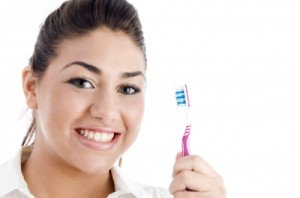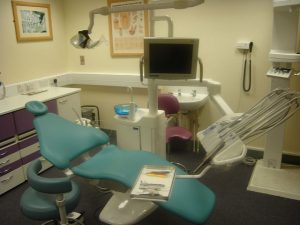
Source: Free Digital Photos
To continue with April’s oral health month series, today I’m discussing oral care for older children and adults. In case you missed it last week, I did a post on oral hygiene for children and what to expect from their first dental visit.
At the office I work at, I see all walks of life. The richest and poorest of our great city. The diversification is refreshing and keeps my job interesting. Our health doesn’t discriminate based on our financial background. I see very wealthy people with terrible oral hygiene and people living in poverty with fantastic oral health. Some things are the same regardless of our socioeconomic status. Like having to care for our teeth.
The Basics of Older Children Oral Care
Good oral hygiene starts with the basics of brushing and flossing. Brush at least twice a day, floss once. Do it well. Brushing and flossing are not areas to slack. If done properly it won’t take more than five minutes total out of your entire day. A set of healthy teeth and gums is worth five minutes.
Electric toothbrushes really do live up to their hype. For the average individual, brushing with an electric toothbrush will be more effective than manual brushing.
Flossing is important. Your toothbrush is unable to reach in between your teeth where a majority of the bacteria laden plaque lives. We ask you to floss at least once every 24 hours to disturb the plaques formation not allowing it to harden into calculus (or tartar).
You don’t have to use traditional floss. Individual flossers, soft picks, tooth picks, anything that fits in between your teeth. I don’t care, just do it everyday. Before or after brushing, it doesn’t matter just do it! This is a great visual resource about proper brushing and flossing.
Caring for Orthodontics
Caring for teeth while wearing braces is a bit more of a challenge but it is more important than ever to care for your teeth. If you don’t effectively remove the plaque from the area around the brackets on your tooth’s surface, decay can happen. There is nothing worse than seeing beautiful straight teeth, and years worth of work, be overshadowed by bright white squares on the tooth from decalcification.
While there are special orthodontic toothbrushes (both manual and electric) a regular toothbrush, with a slightly modified technique will work just fine. My personal favorite tool for helping remove plaque and small food particles from braces, is an ‘end tuft’ brush. Essentially it is a tiny toothbrush but works well to get around the brackets and wires.
Once braces are removed and you’re into a retainer keeping it clean and plaque free is equally important. Rinse it in water and use a toothbrush to remove soft plaque. Bring it to all future dental appointments so they can observe how it is fitting and professionally clean it for you in their ultrasonic cleaner while you are in your appointment.
I Have No Teeth!
I have two edentulous patients who see me once a year. Just because they have no teeth doesn’t mean the may not have other issues. Unfortunately dentures are not just for older people. You would be surprised at the number of young individuals in partial or complete dentures.
Dentures need to be maintained and oral exams are very important. Even if you have no teeth, I recommend seeing a dentist once a year for a quick exam and denture fitting or adjustment.
Complete dentures need to be removed for a few hours everyday. Ideally overnight but I respect that some people, women especially, aren’t comfortable removing their teeth in front of their spouse. It can be a very self conscious thing. If you can’t remove your dentures overnight, take them out for a few hours while cleaning the house, cooking, bathing. It is important to allow your tissues to breath.
Clean dentures regularly to remove plaque and food debris.
Sports
Mouthguards are invaluable. Having a custom mouthguard made by your dentist or hygienist ensures your teeth and head are protected. I don’t think I need to explain the detriments of concussions, or the importance of having a family photo done without a gap toothed smile.
Good oral hygiene at all ages is so important for your overall health. Though starting young is ideal, it is never too late to start caring for your teeth and overall oral health!
Money saving tip: Clean retainers, dentures, mouth guards and bite plates with a regular toothbrush and mouthwash or dish soap. Rinse well!
Catherine is a first time momma to a rambunctious toddler. When she isn’t soaking up all that motherhood has to offer, you can find her blogging over at Plunged in Debt where she chronicles her and her husbands journey out of debt. You can also follow her on Twitter.
